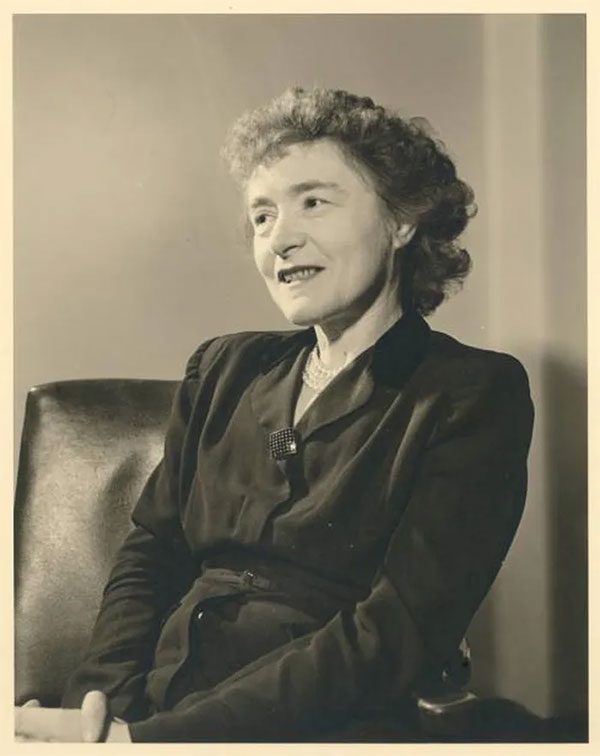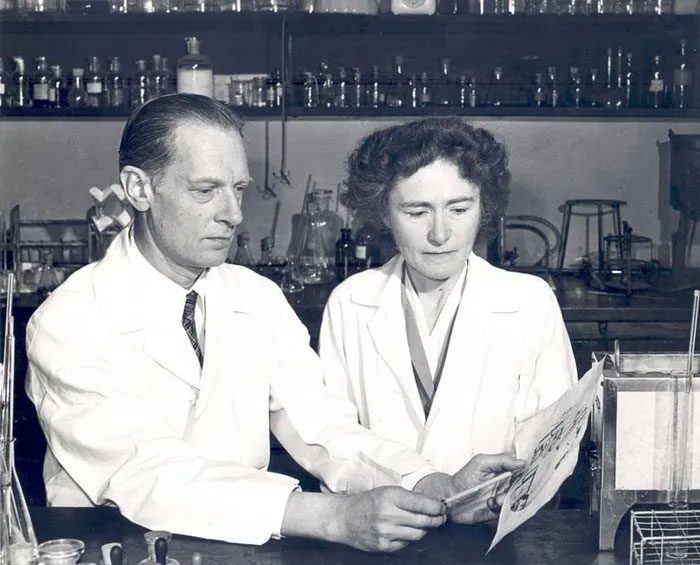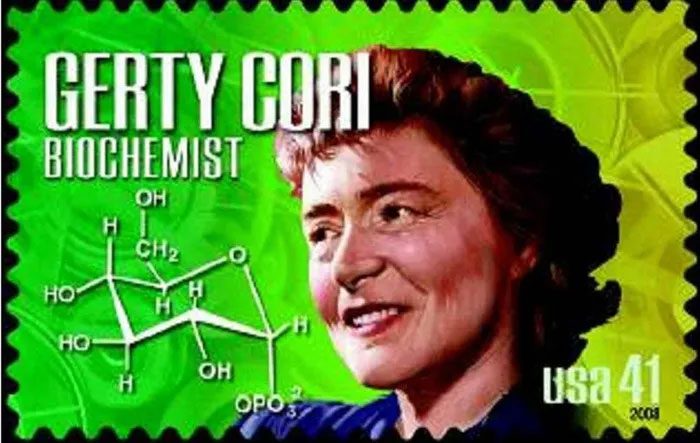Gerty Cori was the first woman in the world to win a Nobel Prize in the field of Medicine. Along with her husband Carl Ferdinand Cori, they shared a passion for preclinical research aimed at proving vital concepts in the field of genetics.
Gerty Theresa Cori (1896-1957) was an American biochemist of Jewish descent. She was the eldest of three daughters of Martha and Otto Radnitz, the director of a sugar factory. She was tutored at home before attending a girls’ high school. Her uncle, a pediatric professor, encouraged her to pursue medicine, and in 1914, she was admitted to Charles University in Prague (Czech Republic). At that time, very few female students were accepted into the university.
While studying there, she met Carl Ferdinand Cori (1896 – 1984), an American biochemist and pharmacologist of Austrian descent. Both had a keen interest in laboratory research. By 1920, the couple was officially married. That same year, they earned their medical doctorates from Prague University. They had one son together.

Portrait of scientist Gerty Theresa Cori.
Gerty and her husband began researching carbohydrate metabolism while still medical students at Prague University. When Gerty was young, her father developed diabetes and hoped that his daughter would find a cure for the disease. Gerty did not disappoint him; in 1947, after 30 years of dedicated research, she and her husband were awarded the Nobel Prize in Medicine for their discovery of the conversion of glycogen under the influence of catalysts. Glycogen is a derivative of glucose that dissolves and is resynthesized in the body to serve as a source and storage of energy. Their work led to the discovery that enzyme deficiencies can lead to metabolic disorders. They conducted extensive research on hormone activity, focusing on the pituitary gland.
Later, Carl moved to Vienna (Austria) where Gerty worked at a children’s hospital and Carl worked in a university laboratory. The consequences of war meant food was scarce for Europeans at that time. Gerty was provided with nutritional supplements at the hospital but refused them, believing that the patients needed them more. She suffered from xerophthalmia, a disease related to vitamin deficiency. This, combined with the rising anti-Semitism, led the Cori family to decide to emigrate.

The Coris both shared a passion for laboratory research.
In 1922, they moved to the United States and worked at the “Institute for Cancer Research” (now Roswell Park Comprehensive Cancer Center) in New York. After years of joint effort, they became U.S. citizens in 1928 and continued their research for the benefit of humanity. The Coris published a total of 50 joint articles while working at Roswell.
The person who contributed the most to the research was listed first (the person who contributed less was listed second) in those articles. Gerty published 11 articles on her own. In 1929, they jointly proposed the theory known as “Cori Cycle,” which explains the movement of energy in the body: from tissues and muscles to the liver and back to tissues and muscles.
The Cori Cycle explains the movement of energy in the body. Glycogen in muscles is converted into glucose when energy is needed for physical activity, but the muscles leave some glucose in the form of lactic acid for later use. Lactic acid is recycled into glycogen by the liver, which is then stored in the muscles until needed. Their discovery of this process was particularly useful for treating diabetes, and it was the first time the carbohydrate cycle in the human body was fully understood and explained. This theory later earned them the Nobel Prize in Medicine.

In 1947, the Coris received the Nobel Prize in Medicine.
The couple left Roswell after publishing their research on carbohydrate metabolism. They received numerous awards for isolating and discovering glucose-1 phosphate (later known as Cori ester). Many universities invited Carl to work, but Gerty was often overlooked.
In 1931, they moved to St. Louis, Missouri, where Carl was invited to become a professor of pharmacology at Washington University School of Medicine. Despite her research expertise, Gerty was only invited to work as a research assistant. In 1947, when Carl became the head of the biochemistry department, Gerty was promoted to professor, a position she held until her death.

Gerty Cori’s contributions have advanced the field of medicine.
In 1952, U.S. President Harry S. Truman appointed her to the National Science Board. Gerty received numerous honors and awards throughout her life, particularly the Squibb Award in Endocrinology in 1947; the National Press Club Award for Women in 1948; and the National Academy of Sciences Research Award in 1950… She received honorary degrees from institutions such as Smith College, Yale University, and the University of Rochester.
In 1947, she began to experience symptoms of myelofibrosis, a rare bone marrow disease. For ten years, she continued her work while enduring pain. On October 26, 1957, she passed away due to kidney failure.
Gerty was celebrated for her dedication, intellect, integrity, courage, and professionalism in pursuing the fields of medicine and biochemistry. She was the first American woman to win a Nobel Prize. Gerty’s image was also honored on a U.S. postage stamp in 2008. The “Cori Crater” on the Moon is named after her. She also shares a “star” with her husband on the St. Louis Walk of Fame.


















































